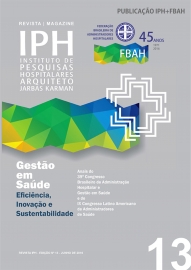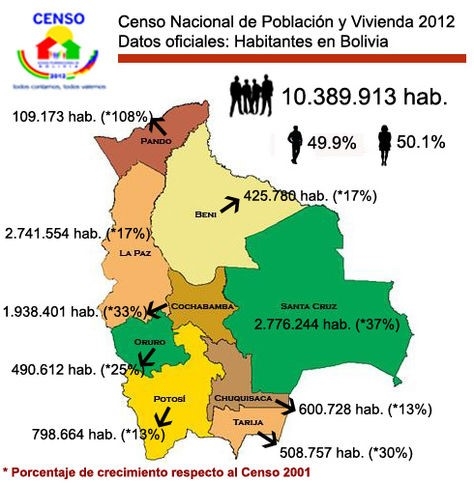Publications IPH Magazine IPH Magazine 13th: Annals The Process of Change in Bolivia "Hospital Arco Iris" from Solid Hospital to Liquid Hospital

- Editorial - 13th
- HEALTH MANAGEMENT: Efficiency, Innovation and Sustainability
- Health Management Focused on Efficiency, Innovation and Sustainability!
- CONGRESS FOR COST AND FINANCIAL MANAGEMENT
- Hospitals, networks and sustainability
- Cost Reduction through Process Review
- Integrating Business Management to the Assistance Management
- International experience on the compensation models
- The Future of Hospital System - The Sustainability Challenge of Small Hospitals
- Advances in Patient Safety: Indicators and Impact on Cost Assistance
- Prospects for Public Private Partnerships and the Partnership Arrangements with Health Social - Critical Analysis of the PPP Brazilian Experiences in Health
- ENGINEERING, ARCHITECTURE AND LOGISTICS CONGRESS
- Hospital Logistics: Intelligence at Service for the Health Manager
- PEOPLE MANAGEMENT AND LEADERSHIP CONGRESS
- Illusionist Performance: Transformation and Innovation in Tough Times
- Implementation Careers & Salaries: New Paradigms and Opportunities
- The Art of Leading Generations X, Y and Z - How to retain talent?
- Giving Back Over the Organizational Climate - Talent Retention Strategies
- Creative Practices to Innovate in HR
- HEALTH MANAGMENT CONGRESS
- Efficiency
- Efficiency (2)
- The Process of Change in Bolivia "Hospital Arco Iris" from Solid Hospital to Liquid Hospital
- PATIENT'S QUALITY AND SAFETY CONGRESS
- Impact of External Assessment in Brazil
- Impact of External Assessment in Brazil (2)
- Quality and impact of patient safety in the hospital financial result - Santa Casa de Misericordia de Maceió
- Quality and Safety Integration on Education Process
- Management
- The Apthapi as Innovation Strategy in the Humanization of Healthcare Hospitality
- The experience of the State Hospital Sumaré / Unicamp in management by care
- HOSPITAL HOTEL CONGRESS
- Hospitality in Patient Perspective
- Hospitality at the Service of Humanization
- Hospitality and Humanization
- Hospitals Infrastructure Trends aimed at Physical and Mental Comfort for Patients and Families
- The Multidisciplinary Integration of Beds Management as a Way to Seek Effectiveness
- Spirituality in Hospitals Focusing on Healthcare Hospitality
The Process of Change in Bolivia "Hospital Arco Iris" from Solid Hospital to Liquid Hospital
Ramiro Narváez Fernández

Bolivia, historically a laggard country, Bolivia, located in the center of South America, has 9 departments and 337 municipalities, an area of 1,098,581 km2 and a population estimated by the National Statistics Institute (INE) for 2013 of 389,913 inhabitants, 66% urban and 34% rural. Life expectancy at birth was 66.34 years, the population growth rate of 2.24% and the total fertility rate of 3.5 children, with significant urban-rural differences and the crude birth rate of 27, 1 born by 1000; with a social debt accumulated over many years, which is facing new challenges, the so-called "process of change", whose main attributes were the revaluation of the ancient culture and therefore the inclusion of areas forgotten in the national agenda, sustained economic growth and a better distribution of economic resources in the health field, health as a right contained in the new State constitution, the constitutionalizing informed consent, and a long way to have to move to the real transformation of health. Neverthless they have laid the foundations for a real transformation, we are a different country, so should change the system, hospitals and health professionals in a changing world in permanent crisis; there arises the conceptual first need to dare to propose a different hospital model, which involves a change in the care model based on paradigm shifts in our country. We assume the challenge in the framework of a public-private partnership, out of our four walls, projecting the people and the place where they live and work (street communities); peripheral populations of the cities of La Paz and El Alto and rural populations of the Department of La Paz, coordinating health services networks, interconnecting supported by the ICT, Telemedicine, mobile phone, etc. Thus generating alliance agreements with different organizations, indigenous and native peoples and with the plural state.

From the perspective of the Meso and Micro management, focus management on patients, by providing our services and technology, relying on knowledge and permanent innovation, trying to change the "physical state of our hospital" and thus the rigid existing hospital structure in our country, solid, focused on doctors, health personnel and hospital centripetal way, a flexible model, patient-centered and needs, this hospital we call "hospital liquid ", i.e. this at the height of the times and the processes of transformation and change, which are merit of the group and its people. In a changing world, where people do not want to be second and therefore are more demanding, they are more informed and want to make decisions about their disease. The development of new technologies allows obtaining information and instant communication, i.e. we are living in times of change and some very profound changes.
This resembles the story of Hospital Arco Iris in the city of La Paz; Bolivia, who wanted to interpret the sentiment of the people and become fluent, plain and simple as the lowliest Bolivia, abandoned long protagonist of this new country we all want to win.
Ramiro Narváez Fernández
Pediatrician; Master in Hospital Management; Professor of Graduate University of San Andres (Guest); Director General Hospital Arco Iris; President of the Bolivian Association of Hospitals; President of the Bolivian Society of Telemedicine and Medical Informatics.
Send by e-mail:


